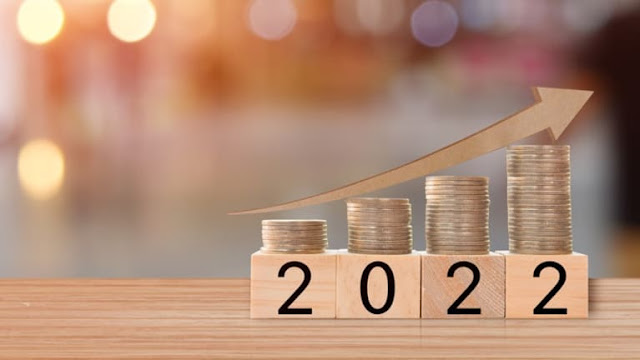Everything is getting pricier. Everyone, from consumers to business owners, feels the pain.
How bad is it?
For eight consecutive months, consumer prices spiked by 5% or more. The consumer price index rose 7% in December from a year ago. The last time inflation reached 7.1% was in June 1982. Here is a breakdown (as compared to last December unless specified otherwise):
- Food: +6.3%
- Gasoline: +49.6%
- Energy: +29.3% or -1.1% from November
- Used car and truck: +37.3%
- Shelter cost: 4.1% or 0.4% from November
Wage is rising too
The inflation, plus labor shortage and the “Great Resignation,” have also pushed higher wages. Goldman Sacks CEO David Michael Solomon suggested in an interview that wage inflation is happening “in every area of the economy.” In December, the average hourly wages showed a 4.7% year-to-year increase, as some financial service firms reported a 14% or even 34% increase in compensation expenses.
Inflation is not the only challenge, however
Some economists believe the inflation is partially caused by the disruptions in the supply chain and hope it will go away with the pandemic. Indeed, many hotels and restaurants must deal with supply chain disruptions too. Many just do not have sufficient goods to serve the guests, even if they are willing to pay more to the suppliers.
Can rapidly rising food prices give restaurants an edge?
Some analysts believe the rapidly rising food-at-home prices (this category only) would encourage people to eat in restaurants more often. By comparison, food-at-home prices increased 6.5% from last December, whereas prices for eating out jumped 6%. The smaller price gap between eating at home and outside makes dining out more appealing to U.S. families, although 51.9% of consumer spending on food contributes to at-home occasions now. The last time when consumers allocated less than 50% of their food budget on dining out was in 2008.
Running a business when everything becomes pricier is not easy, but there is hope in 2022. What do you think the New Year will bring?
Note: This viewpoint was first published in The Hospitality News Magazine in February 2022. The picture was downloaded from SHRM.org.


Following the trends of inflation, I do not believe that the situation will be getting better any time soon. The struggle for hotels and restaurants dealing with disruptions in their supply chain could have an impact on the individual operation in terms of its customer loyalty. On the other hand, I do recognize the positive aspects of inflation in how it is helping boost the activity in some restaurants, as it says in the article that the rise in food prices and the smaller price gap with the option of food-at-home is encouraging more people to eat out more often. Overall, I believe that the several components to inflation, I believe it will be hard for it to get better anytime soon.
ReplyDeleteI would say certain inflation is a good thing. Through common sense, we know that the money in our wallets will depreciate if we don't spend it. In other words, it is called inflation, which is the decline of purchasing power. Everyone doesn't think this is a good thing, but let's consider the situation of deflation, that is, money will not depreciate, but will become more valuable. If money does not depreciate, we will not be willing to spend money, because today's 100 bucks can buy 100 pounds of potatoes, and tomorrow's 100 dollars may buy 200 pounds of potatoes, so we will not spend money but keep the money. The more we delay buying, the better. We will not buy what we cannot buy, and the total consumption of society will decline sharply. The decline of total consumption will lead to the decline of total production and the higher production cost of a single product, The decline of total production will lead to a large number of workers' unemployment, which will lead to more social instability. At this time, people will not borrow money, because when they borrow 100 dollars today and return 100 tomorrow, the value is not the current 100. In fact, borrowing money is a loss, so people will not borrow money to do things. Entrepreneurs will not borrow money to expand the scale, entrepreneurs will not find investment and entrepreneurship. Investors think that money can appreciate without investment. How can they invest? So, the economy will decline rapidly. From the perspective of ordinary people, if it is deflation, the money of the rich will become more and more valuable, the poor will become poorer, and the gap between the rich and the poor will become larger and larger. Therefore, no matter what the consideration is, the government must want some sort of inflation, as long as not too rapid like what we currently experience.
ReplyDelete